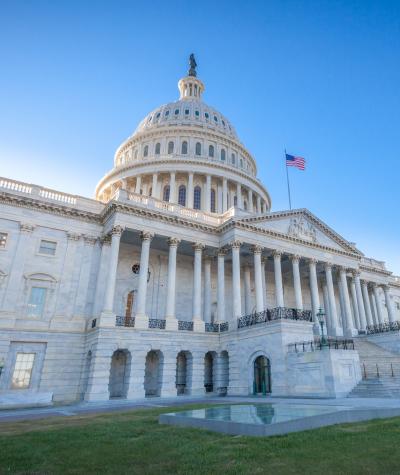One year ago today, we witnessed a substantial attack on a cornerstone of our democracy: the peaceful transfer of power. Last January 6 illustrated a democracy in crisis: a violent attack on Congress while it was counting the Electoral College votes, and an attack by many Republican members of Congress on the right of voters in the states to elect the president through their Electoral College choices.
In response to the record turnout in 2020, a number of states have passed new laws designed to make it harder to vote, particularly targeting the ability to vote absentee, something that a huge number of Americans did in 2020.
In response to these state attempts to limit voting, several promising voting rights bills have passed the House. However, the Senate has not been able to begin debate—let alone pass—even a single piece of legislation to strengthen our democracy and protect fair and free elections.
This is because the chamber’s filibuster rules have been abused in order to prevent even starting a debate on these most-needed voting rights measures.
If that does not change now (and there is no sign yet that it will) then modifying the filibuster rules to bypass the continued obstruction of these pro-voter measures will be the only way to pass meaningful democracy legislation such as the Freedom to Vote Act and the John Lewis Voting Rights Advancement Act.
The Senate has changed the filibuster rules frequently in the last decades, and now may be the time to do so again. These two bills are based on ideas that have long had bipartisan support at both the federal and state levels. The bills promote the freedom to vote, ensure fairness in redistricting and curb secret political spending, also known as dark money.
They represent the will of the people—as public opinion poll after public opinion poll shows without question that voters support national standards protecting the freedom to vote.
There are other key bills that must also pass. These include the Protecting Our Democracy Act (which would create and strengthen guardrails preventing the abuse of executive power and restore Congress as a meaningful check on executive authority) which has passed the House and is awaiting a Senate vote.
Additionally, legislation to update the Electoral Count Act, which regulates the counting of the votes for president and vice president, is a necessity before the next election.
However, these proposals are not a substitute for the Freedom to Vote Act and the John Lewis Voting Rights Advancement Act currently before the Senate. All of these measures are needed to protect our political system and preserve our democracy for generations to come.

